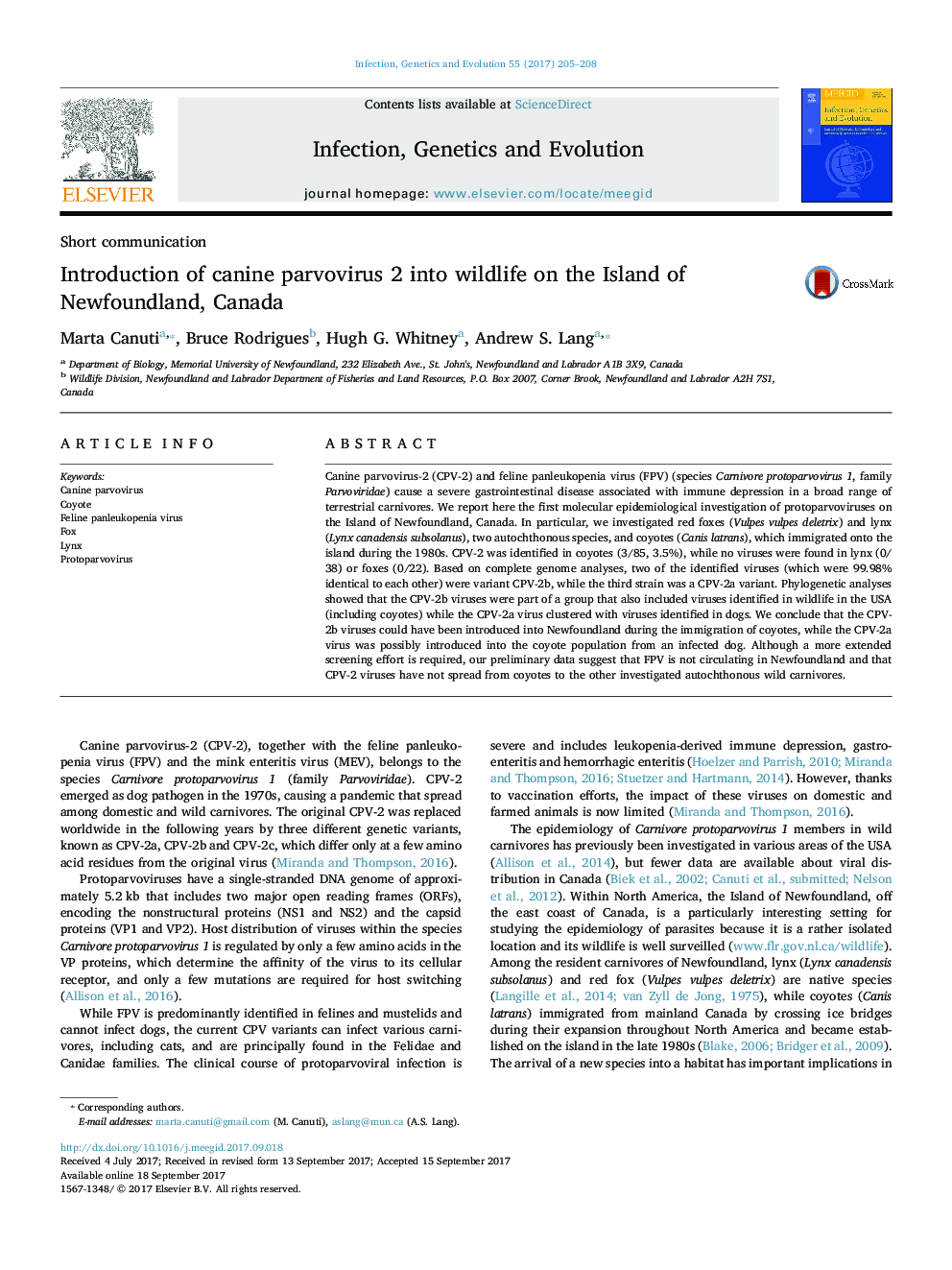| Article ID | Journal | Published Year | Pages | File Type |
|---|---|---|---|---|
| 5590386 | Infection, Genetics and Evolution | 2017 | 4 Pages |
Abstract
Canine parvovirus-2 (CPV-2) and feline panleukopenia virus (FPV) (species Carnivore protoparvovirus 1, family Parvoviridae) cause a severe gastrointestinal disease associated with immune depression in a broad range of terrestrial carnivores. We report here the first molecular epidemiological investigation of protoparvoviruses on the Island of Newfoundland, Canada. In particular, we investigated red foxes (Vulpes vulpes deletrix) and lynx (Lynx canadensis subsolanus), two autochthonous species, and coyotes (Canis latrans), which immigrated onto the island during the 1980s. CPV-2 was identified in coyotes (3/85, 3.5%), while no viruses were found in lynx (0/38) or foxes (0/22). Based on complete genome analyses, two of the identified viruses (which were 99.98% identical to each other) were variant CPV-2b, while the third strain was a CPV-2a variant. Phylogenetic analyses showed that the CPV-2b viruses were part of a group that also included viruses identified in wildlife in the USA (including coyotes) while the CPV-2a virus clustered with viruses identified in dogs. We conclude that the CPV-2b viruses could have been introduced into Newfoundland during the immigration of coyotes, while the CPV-2a virus was possibly introduced into the coyote population from an infected dog. Although a more extended screening effort is required, our preliminary data suggest that FPV is not circulating in Newfoundland and that CPV-2 viruses have not spread from coyotes to the other investigated autochthonous wild carnivores.
Related Topics
Life Sciences
Agricultural and Biological Sciences
Ecology, Evolution, Behavior and Systematics
Authors
Marta Canuti, Bruce Rodrigues, Hugh G. Whitney, Andrew S. Lang,
